A poll by The Ivors Academy and Musicians’ Union has exposed the shockingly inadequate earnings the majority of music creators currently receive from streaming. The findings come ahead of the second meeting of the DCMS Select Committee inquiry into the economics of music streaming, on Tuesday 8 December.
The survey of the organisations’ members shows the reality of streaming income for writers, artists, musicians, songwriters and composers:
- 82% of respondents earned less than £200 from streaming, from all of their music across all platforms in 2019. This included members with thousands, hundreds of thousands, and millions of streams.
- 92% said less than 5% of their earnings came from streaming last year.
- 50% said their income from recorded music has declined over the past 10 years.
- 43% said that insufficient income from streaming caused them to get a job outside of music.
At the second meeting of the inquiry on 8 December MPs will hear from Ivor Novello Award-winning songwriter and artist Nile Rodgers, songwriter and The Ivors Academy member Fiona Bevan, Jazz alto-saxophonist and The Ivors Academy member Soweto Kinch, manager and record producer Kwame Kwaten, Managing Director at Maria Forte Music Services Ltd Maria Forte and José Luis Sevillano Director General at the Society for Artists (AIE) in Spain.
The first meeting of the Select Committee inquiry heard from artists and performers Guy Garvey, Nadine Shah, Ed O’Brien and Tom Gray. After the first meeting of the Select Committee inquiry the Chair, Julian Knight MP, expressed concern that some people were reluctant to speak to the inquiry, “because they fear action may be taken against them if they speak in public.” Going on to say that “No-one should suffer any detriment for speaking to a Parliamentary Committee and anyone deliberately causing harm to one of our witnesses would be in danger of being in contempt of this House.”
The Ivors Academy and Musicians’ Union have been campaigning to Fix Streaming calling the royalties paid to music creators from streaming “woefully insufficient”. A campaign petition calling for a Government review received over 17,000 signatures.
Graham Davies, CEO of The Ivors Academy said “This survey is further demonstration that the song and the songwriter are undervalued. Too much streaming money is going to the major labels, this is an outdated model and needs reform. We have the best songwriters in the world and they deserve more.”
Naomi Pohl, Deputy General Secretary of the Musicians’ Union said “These statistics show that music streaming does not play its part in supporting the careers of the vast majority of creators and artists on whose work it relies. We have to make the economics of streaming fairer; improved deals for artists, a bigger share of revenue for songwriters and an income stream for the first time for non-featured musicians.”
The Ivors Academy and the Musicians’ Union asked their members to provide comments about their experiences of streaming anonymously through the survey:
“I have written songs that have been prominently playlisted on streaming platforms … These songs have garnered millions of streams but generated next to no income for me as songwriter.”
“I appreciate that streaming is the future. But the earning potential [for creators] given the company value is not fair” songwriter and artist.
“[Streaming is] not sustainable and does in no way even return the investment I put into the recording, production or marketing of the songs” artist.
“Albums which cost tens of thousands of pounds – perhaps hundreds of thousands – to produce generate pitiful revenue from streaming platforms, so there’s no incentive for…independents like me to make records” songwriter.
The poll of members of The Ivors Academy and the Musicians’ Union was conducted in November 2020 and received 311 responses.





